Historically, during the lifespan of our project, surveyed participants have shown a general support over the years for censoring offensive content and media content that harms morality. However, this year’s survey seems to suggest a gradual shift in this area.
Figure 7: Attitudes on showing media that Includes offensive content
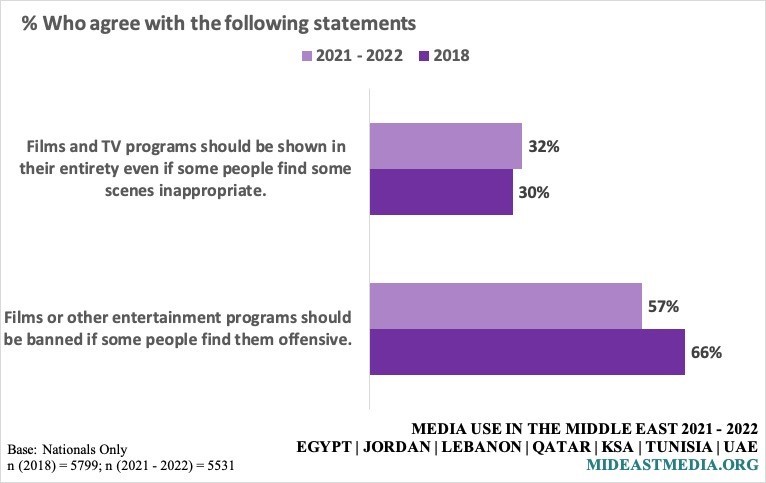
While most nationals call for banning entertainment media that includes offensive content (66% in 2018 and 57% in 2021-2022), there is a rising tolerance to perceived offensive content with more nationals agreeing to showcasing the entirety of films and TV programs even in case of offensive content and a steady decline in those calling for banning films and tv programs. Tolerance for showing content includes more nationals (56%) say that avoiding objectionable content is the responsibility of individuals, while less than half say that it is the responsibility of governments.
Figure 8: Responsibility of avoiding objectionable content over the years
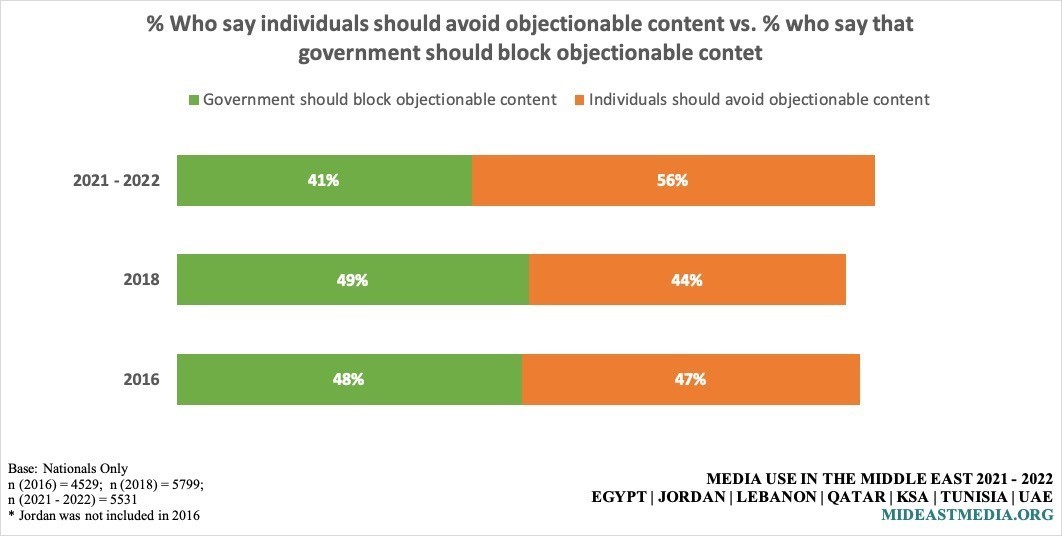
Although the trend observed during the period 2018-2019 saw very little variation and attributed the responsibility to block objectionable content to the government by very little margin. This year’s result suggests that individuals should be responsible for avoiding such content and not governments the responsible to block it. This is an interesting change in the trend that suggests that participants are more interested in exercising their own free will to make decisions on the type of content they consume or avoid.
Figure 9: Attitudes on freedom of expression in criticizing governments online
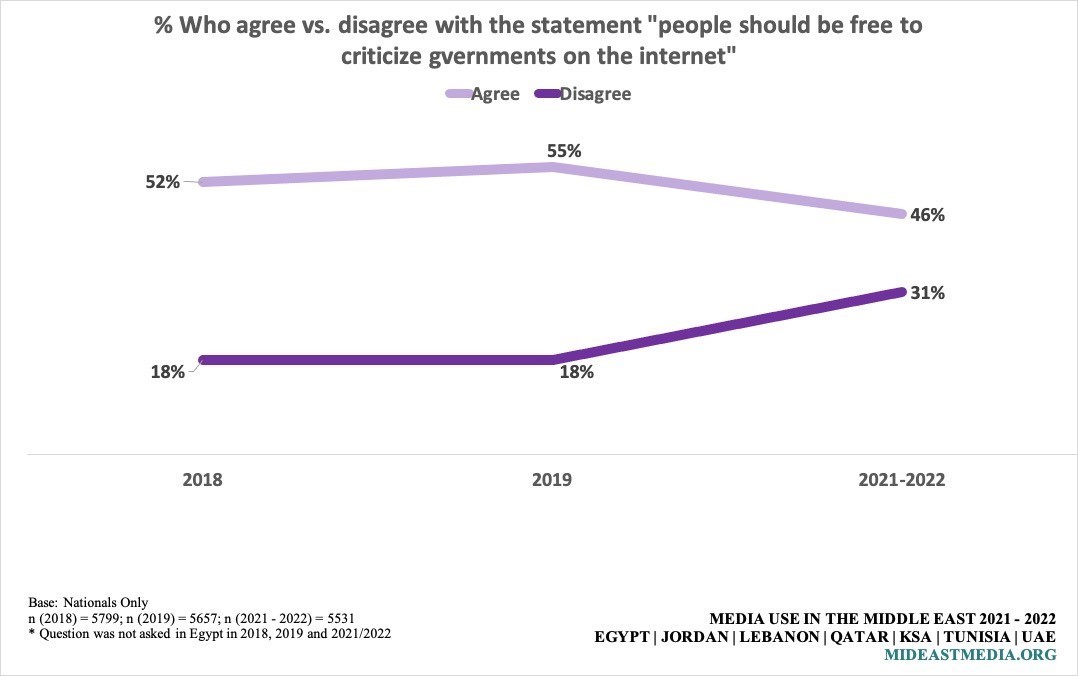
Another interesting shift that we observed during the analysis of the results, was an abnormal increase (13 percentage points) in disagreement with the idea that people should be free to criticize their governments online. This was further corroborated by a 9% decrease in agreement on the statement. Results suggest that this trend remained almost unaltered during the period 2018-2019, with significant changes being observed this year.
Figure 10: Attitudes on freedom of expression online
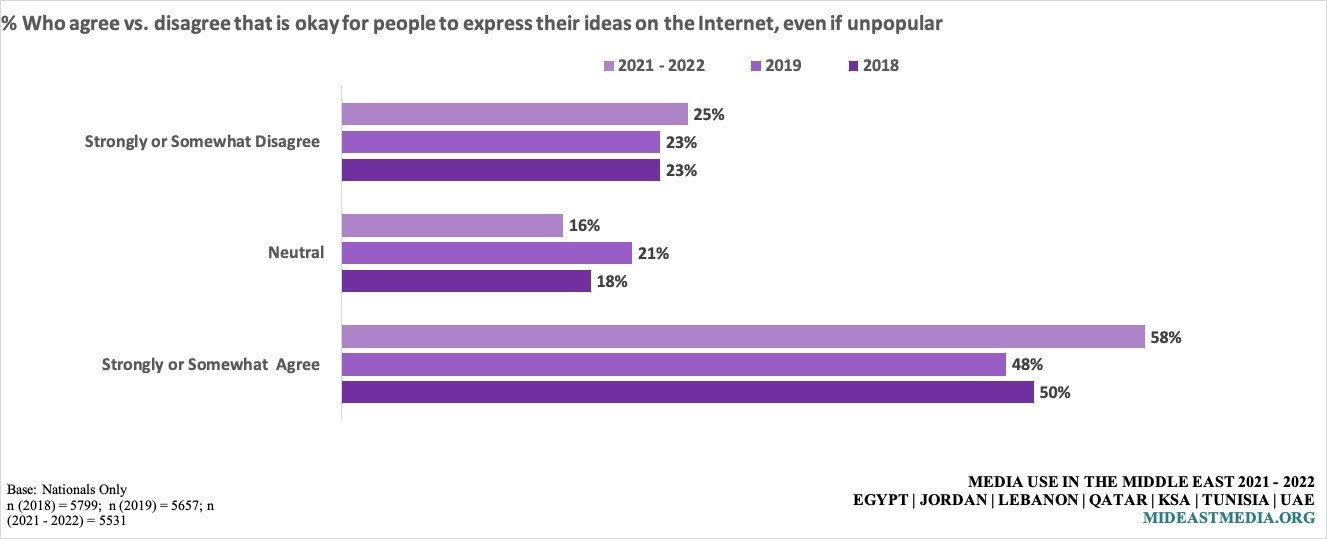
While more nationals supported freedom of speech online over the years (50% in 2018 vs. 58% in 2021-2022), a quarter of nationals in the region disagree. Critique of government does not seem to be supported in the region despite the support for freedom of speech, with more people disagreeing that it is okay to criticize government online (31% in 2021-2022 vs. 18% in 2019) and less people agreeing (55% In 2019 vs. 46% in 2021-2022). On the other hand, 46% of nationals say they feel comfortable saying what they think about politics, a slight decline since 2018.
Figure 11: Concerns over digital privacy over the years
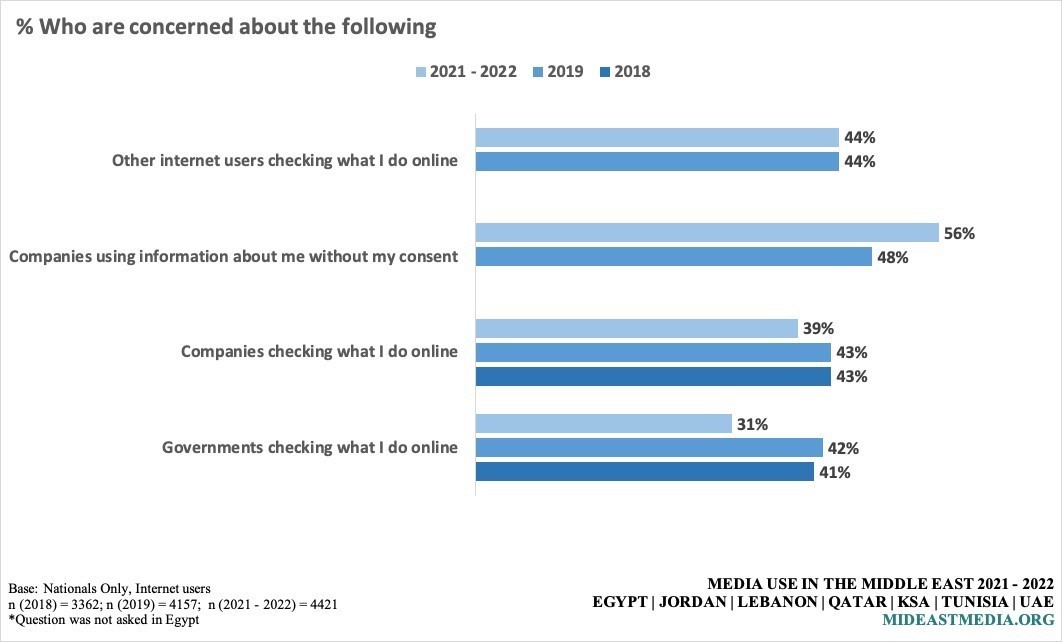
More than half nationals than previous years say that the concerns they have about digital privacy has led them to change their online behavior (68%).
Companies’ use of personal online information is the leading concern among internet users in the region (56%). Concern over government surveillance has dropped steeply since 2019 (42% in 2019n vs. 31% in 2021-2022)